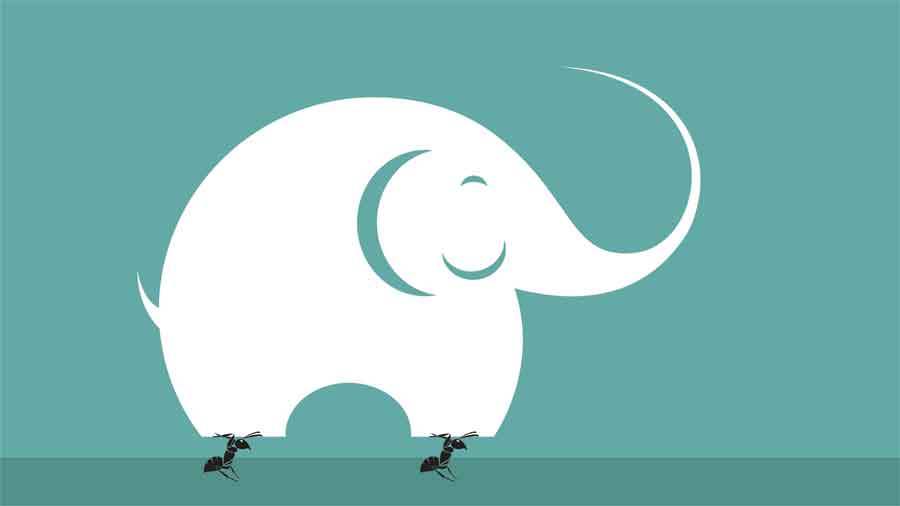The human race is believed to be the most intelligent living species on earth. This belief is, of course, held by human beings — whether or not it is shared by other species in the animal kingdom remains a mystery to scientists. This conceit has, unsurprisingly, led civilization to be narcissistic. The collective conviction in the superiority — intellectual and otherwise — of their own kind has rendered human beings unable — unwilling? — to acknowledge the sentience and intelligence of other life forms on the planet. This smugness has had an interesting consequence: the endowing of ‘human’ qualities to flora and fauna. This human urge to anthropomorphize creatures great and small in order to perceive them in the light of mankind — wise, emotional and intelligent — is evident in literary works, be it the fables of Aesop with their talking animals, the Jatakas documenting the many lives of the Buddha, some of which were in animal form, or the beloved Cheshire Cat and its brethren in Lewis Carroll’s Alice in Wonderland.
The time, however, may have arrived for these blinkers to finally come off and for human beings to acknowledge that intellect and a scientific bend of mind may not be their monopoly. Scientists in two independent research groups have discovered a mathematical law in the way elephants use their trunks and a principle of physics in ants’ building of underground tunnels. According to scientists, ants, in spite of their speck-like brain, are intelligent enough to execute an intricate tunnelling behavioural programme — it mirrors tunnel excavation strategies familiar to engineers — to build complex underground cities. Animals, as usual, are being benevolent; scientists now think that elephant trunk dynamics can be used to develop bio-inspired robots to detect, grasp or manipulate objects.
These scientific discoveries open up an intriguing chicken-and-egg question. For years, in spite of their condescension towards fellow creatures, humans have been inspired by animals and their behaviour in diverse fields such as fashion, art and architecture. This phenomenon even has a name: biomimicry. In evolutionary terms, is it possible, then, that animal intelligence played a part in helping early humans — the world’s premier imitators — solve certain challenges? Humans have wondered at, and even envied, animals for their heightened senses, their remarkable efficiency and their ability to adapt to new situations and conditions; present-day robot engineers, such as those at Boston Dynamics, base many of their designs on animals. The recent findings about elephants and ants, while bridging science and literature, have opened up the possibility of anthropomorphism being used as capital for conservation practices. With the planet having entered its sixth phase of mass extinction — more than 500 species of land animals are expected to disappear soon — human beings should take on the responsibility of protecting wildlife and the ecological balance now that science has proved that the differences between man and beast may not be that much.










